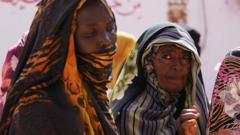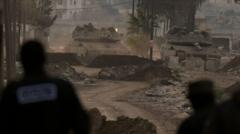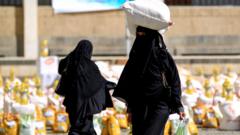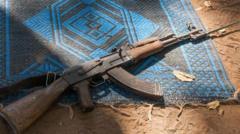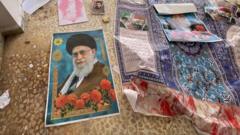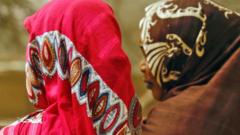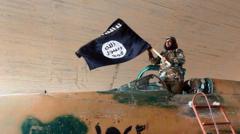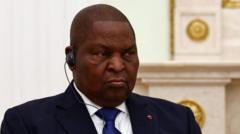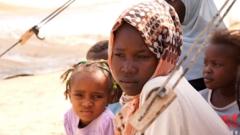As Syria's interim president Ahmed al-Shara initiates a national dialogue with various community representatives, significant questions arise regarding inclusivity and the actual impact of the discussions amidst ongoing sectarian tensions.
Syria's National Dialogue: A Divided Future

Syria's National Dialogue: A Divided Future
Syria's interim government attempts to foster unity through a national dialogue conference, but key players like the Kurdish-led forces are absent.
In a bid to unify the fragmented populace of Syria, the country's interim government under President Ahmed al-Shara has convened a national dialogue conference in Damascus. This two-day event, which began on Monday, February 25, aims to gather voices from diverse demographics across the nation, including representatives from different religious, ethnic, and social backgrounds. The call for such a dialogue comes as part of an effort to shape a more inclusive political landscape following the overthrow of former dictator Bashar al-Assad by a rebel coalition in December.
Despite the potential for constructive discussions, notable absences loom large, particularly the Kurdish-led Syrian Democratic Forces (SDF), which controls substantial territories in the northeast. Although some Kurdish representatives were invited, the SDF was explicitly excluded, leading to heightened skepticism. The interim government has asserted that the SDF must disarm and integrate into a unified national military as a prerequisite for participation in the dialogue. This requirement exacerbates existing tensions, especially considering Turkey’s long-standing opposition to the SDF, accusing it of being linked to separatist forces within its borders.
Concerns regarding the efficacy of the dialogue remain prominent among the Syrian population, many of whom are wary after years of conflict and deep-rooted sectarian divisions. The input from the dialogue is expected to guide recommendations for the formation of a new government and a potential constitutional reform strategy. However, the non-binding nature of these recommendations raises doubts about the dialogue's genuine influence on the future governance of Syria.
Critics question whether the dialogue can genuinely catalyze inclusive governance or if it will devolve into a mere showcase by an interim government predominantly influenced by Hayat Tahrir al-Sham, an Islamist faction that has already appointed loyalists to key positions without integrating other rebel groups into the political framework. As the event unfolds, the sentiment among Syrians appears steeped in skepticism—many asking whether real unity and representation can emerge from a process sidelining significant factions like the SDF in a country as fractured as Syria.
Despite the potential for constructive discussions, notable absences loom large, particularly the Kurdish-led Syrian Democratic Forces (SDF), which controls substantial territories in the northeast. Although some Kurdish representatives were invited, the SDF was explicitly excluded, leading to heightened skepticism. The interim government has asserted that the SDF must disarm and integrate into a unified national military as a prerequisite for participation in the dialogue. This requirement exacerbates existing tensions, especially considering Turkey’s long-standing opposition to the SDF, accusing it of being linked to separatist forces within its borders.
Concerns regarding the efficacy of the dialogue remain prominent among the Syrian population, many of whom are wary after years of conflict and deep-rooted sectarian divisions. The input from the dialogue is expected to guide recommendations for the formation of a new government and a potential constitutional reform strategy. However, the non-binding nature of these recommendations raises doubts about the dialogue's genuine influence on the future governance of Syria.
Critics question whether the dialogue can genuinely catalyze inclusive governance or if it will devolve into a mere showcase by an interim government predominantly influenced by Hayat Tahrir al-Sham, an Islamist faction that has already appointed loyalists to key positions without integrating other rebel groups into the political framework. As the event unfolds, the sentiment among Syrians appears steeped in skepticism—many asking whether real unity and representation can emerge from a process sidelining significant factions like the SDF in a country as fractured as Syria.


